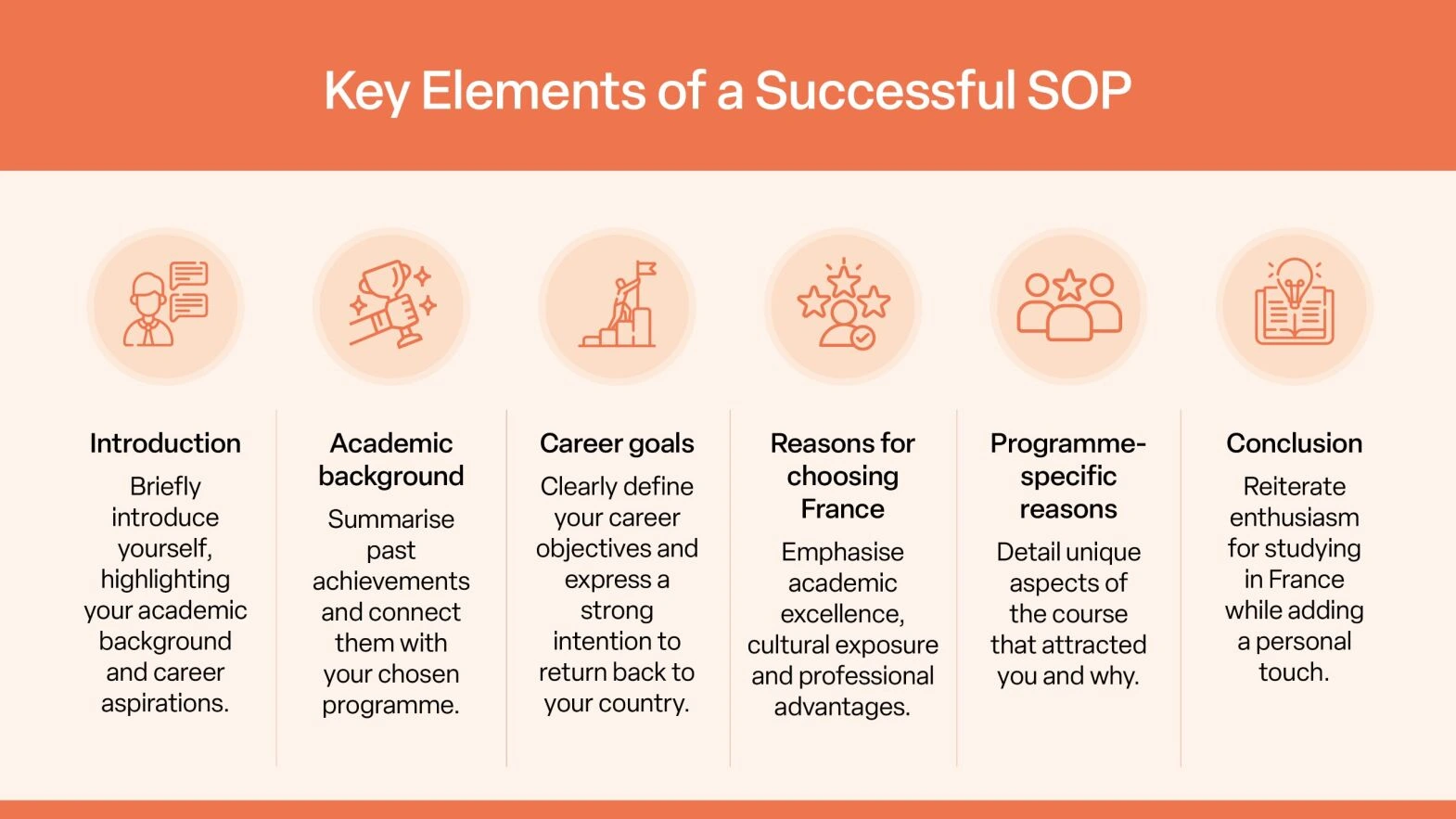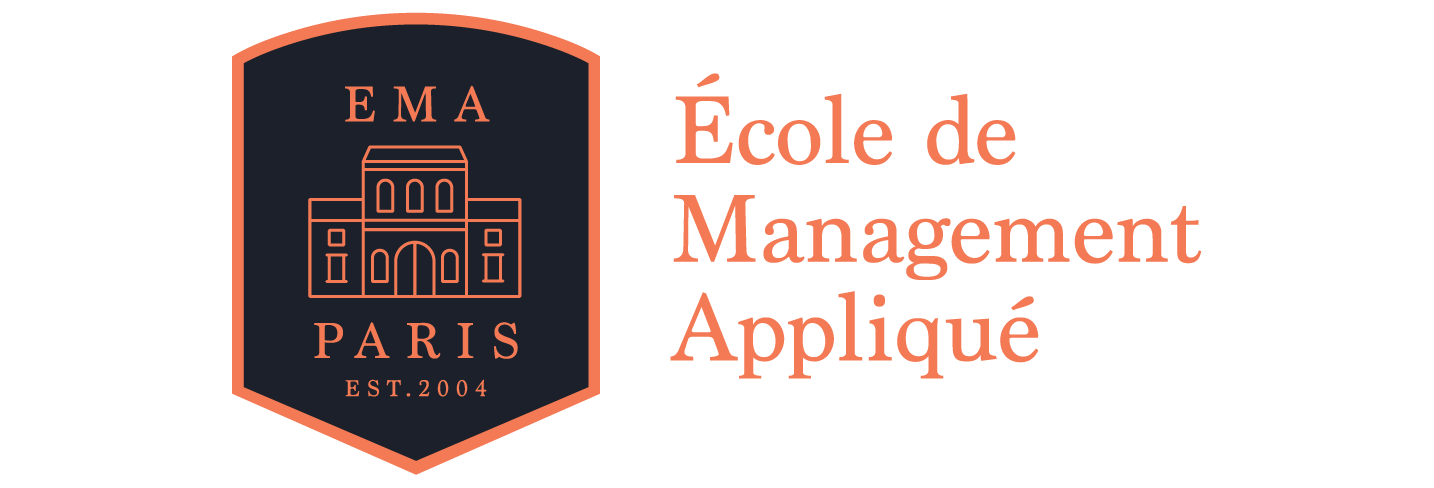To create an SOP for France, you must include these sections: introduction, academic background, career goals, reasons for choosing France, why the specific programme and your personal motivations. Try to connect everything to your long-term goals and add a personal touch to your SOP.
France is a leading destination for international students, offering world-class education, cultural richness and career opportunities. According to U.S. News, France ranks among the top four choices for international students seeking to study abroad.
A well-crafted statement of purpose (SOP) is important for the success of your application to study in France. Through a piece of paper, your motive for international studies, education background, career aspirations and personal motivation is defined and conveyed to your college and visa officials. It sets the base for visa officers to know you well as a student.
Providing an SOP help establish a narrative about your academic goals and career aspirations to French universities or the visa processes. This blog discusses the best practices for articulating your career objectives and provides a sample SOP for a better understanding of this process.
Here is what you must include in your SOP for France:
Your academic background
Start your statement of purpose (SOP) with a brief introduction to your academic journey and how it has equipped you with a solid foundation for advanced studies in France. For example, 'I completed my bachelor's degree in marketing at the University of Toronto, focusing on business management and the digital landscape, which provided me with a strong understanding of digital marketing'.
- Mention any accomplishments and awards relevant to your chosen field of study.
- Any extracurricular activities, workshops or seminars related to the field.
Choosing France for higher studies
France is renowned for its academic excellence, hosting prestigious institutions that offer a wide range of academic programmes. To mention your intent of studying in France, you can:
Highlight the country’s academic excellence
While writing this section, you should highlight why France is popular among international students and what makes it attractive to you. Emphasise the quality of education you will receive there and what sets France apart from other countries. You can also mention how France’s higher education system attracts international students seeking quality education, cultural diversity and global career opportunities.
When discussing why you chose France for higher education: ·
- Focus on its global recognition
- Unique advantages of Paris
- Student-centric policies
Cultural and lifestyle benefits in France
France offers more than just academics when it comes to cultural immersion. Discuss how exposure to French art, cuisine and multicultural environments will enhance your personal growth. Connect your interest in art and culture to this exposure and how it can help build a better personality.
Economic advantages
France’s dynamic economy, home to global corporations such as Renault, L'Oréal, and BNP Paribas, provides excellent networking opportunities for students aiming for competitive roles. Make sure to highlight why this is relevant for your career aspirations and how it aligns with career opportunities in France.
Reason for choosing a particular programme for studying in France
Connect your chosen programme with your academic background and career goals. For example, if you are pursuing a master's in business administration, discuss how the curriculum aligns with your aspirations to become a business strategist. You can also share why you want to pursue this programme and what motivates you.
Furthermore, you can provide a brief description of your university, why it is such a good match for you, and how it will help you achieve your career goals. Introducing the university’s strengths, such as its faculty, industry connections or global reputation, can further enhance your decision.
Your career vision and goals
France offers an ideal environment for professional growth, thanks to its strong economy and industry-leading companies. Your career objectives should include the following:
Define clear career goals
Specify short-term and long-term objectives. It is important to demonstrate that your goals are clearly defined and attainable. For example:
- Short-term: Gain expertise through internships in multinational firms.
- Long-term: Establish yourself as a professional in the renewable energy or digital marketing sectors.
Link programme curriculum to career goals
Highlight how specific courses, projects or internships offered by your selected university will help you develop relevant skills. For example, how a master’s in digital marketing will help you become a better marketing manager and lead a team efficiently. Also, highlight the available career opportunities in France you can pursue along with your education.
Your post-graduation plans
Highlight your plans to return to your home country after graduation. Mention how you want to apply acquired knowledge to address industry challenges locally. Highlight that you want to serve the nation and resolve industry challenges. Provide a solid reason for returning home, such as family or other responsibilities.
To better impress the visa officer and highlight your strong motivation, you can also list the names of a few companies that offer jobs in your desired field. Think about your dream job. Name the companies you would love to work for after graduation. Adding these details can make your SOP stronger.
Your personal motivation for studying in France
Sharing your personal motivation for studying in France is crucial to your SOP. This section allows you to narrate your unique story and demonstrate why studying in France is important for your academic and career journey. The following are some tips for addressing this effectively:
- Begin by reflecting on the experiences that shaped your decision to pursue higher education in France. For example, mention a memorable moment, such as a project, internship or volunteer experience, that sparked your interest in your chosen field.
-
Explain how these experiences align with the academic goals of studying in France. For instance, mention how exposure to international policies inspired you to study global governance.
-
Personalise your motivation by sharing specific anecdotes. Like ‘During my undergraduate studies, I participated in an exchange programme that introduced me to French business practices. This experience deepened my interest in a master's degree in France'.
Link your personal story to your long-term career objectives. For example: “My goal is to work as a digital marketing strategist. The programme at [University Name] focuses on consumer behaviour and analytics, which are critical to my career path.”
Although there are no strict guidelines for the France study visa SOP format, these are key points to consider.

How to structure your statement of purpose
A well-structured statement ensures clarity and professionalism. For your application to stand out, you should:
- Avoid generic statements; provide specific examples of achievements or motivations.
- Stay focused; ensure every detail relates directly to your chosen programme or career goals.
- Follow university-specific guidelines on word count and format. In general, it should be between 800-1500 words.
- H1 should be in title case, whereas H2 & H3 should be in sentence case.
- The tone should be professional, yet a little personal. Slang, however, should be strictly avoided.
- Take time to frame your SOP and reflect on your intentions to study in France. You can also review it before finalising a copy.
An SOP clarifies your intentions for studying in France. It helps you make a personal connection with university and visa officers by showcasing your unique story and aspirations.
FAQs about SOP for studying in France
1. How to make an SOP for France?
2. What are the requirements to study in France?
The admission requirement varies from university to university but in general students should have a minimum qualification like a bachelor’s or master’s degree with English language proficiency. Students are also required to submit an SOP clarifying their interest and intention to study in France.
3. Why is France good for international students?
France is well known among international students for its quality education. The practical approach to teaching, language flexibility and cultural exposure add to students’ interest.
4. How can EMA help me with my SOP for France?
École de Management Appliqué provides expert guidance for crafting SOPs that focus on your strengths and aligns with university expectations. With support from the team, you can receive personalised feedback and ensure your SOP stands out in a competitive application process.
5. What is the purpose of the SOP for France visa application?
An SOP is an official document submitted to the visa team clearly stating your intention to study in France. It highlights the purpose of the visit, duration of stay and other details to clarify any questions visa officers may have.

 Brochure
Brochure
 Apply Now
Apply Now

